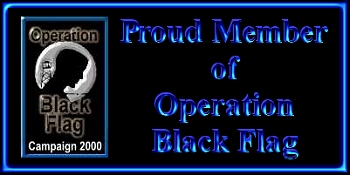



![]()
CAPTAIN HARRY M. RAVENNA III

Name: Harry M. Ravenna III
Rank/Branch: O3/US Army
Unit: 138th Aviation Company, 224th USASA Battalion, USASA Group, Vietnam
Date of Birth: 29 September 1937 (Houston, Tx)
Home City of Record: San Antonio, TX
Date of Loss: 15 November 1966
Country of Loss: South Vietnam
Loss Coordinates: 162535N 1074619E (ZD150045)
Status (in 1973): Missing In Action
Category: 4
Aircraft/Vehicle/Ground: U6A
Other Personnel In Incident: Cpl John C. Keiper, USMC (missing)
![]()
Source:
Compiled from one or more of the following: raw data from U.S. Government agency sources, correspondence with POW/MIA families, published sources, interviews. Updated by the P.O.W. Network.
![]()
Synopsis:
Harry Ravenna was born near Houston, Texas and moved to San Antonio while still a youngster. He graduated from Thomas Jefferson High School in 1955 and St. Mary's University in 1960. He enlisted in the Army, attending Officer Training School at Fort Sill, Oklahoma, and was assigned to duty in Vietnam in September 1966
Ravenna was assigned to the 138th Aviation Company, 224th U. S. Army Security Agency Battalion (Aviation), U. S. Army Security Agency Group, Vietnam. All missions of this agency were highly classified during the war, and secret cover designations (Radio Research Units) were used instead of the actual unit designations on station lists and reports. The 138 was based at Da Nang.
On November 15, 1966, US Army Captain Harry M. Ravenna, pilot, and US Marine Corps Cpl. John C. Keiper, passenger, were flying a U6A aircraft (serial # 541723) on a routine flight from Dong Ha to Da Nang. Keiper was assigned to Helicopter Attack Maintenance Squadron 16, Marine Air Group 16. His role on this mission is unclear from public records. Ravenna filed a VFR (visual flight rules) flight plan, but ran into poor weather conditions. He radioed Dong Ha and request radar guidance. At 1430 hours he passed into Da Nang airfield radar control and radioed, "Lonely Ranger 723, heading 125, 3000 feet, estimating Da Nang at 40, request radar. Presently on instruments." Having trouble bringing him into radar screen, Da Nang instructed Ravenna to activate his transponder, but this did not improve radar contact, so they asked his location, which he gave as 45 nautical miles from Dong Ha. Da Nang instructed him to tact Dong Ha (believing he was out of Da Nang range and still in that of Dong Ha). Ravenna acknowledged the transmission, radio contact was broken, and never resumed. Ravenn and Keiper were last believed to be in South Vietnam about halfway between Da Nang and the city of Hue. Later investigation concluded that on his present course, had it been followed, Ravenna's aircraft would have impacted with the side of a mountain in that vicinity. The hostile threat in the area prevented extensive search, and all efforts to discover the fate of Ravenna and Keiper have failed.
Keiper and Ravenna are among nearly 2500 Americans who did not return from the war in Vietnam. Today, thousands of reports have been received by the U. S. Government that indicate that men are still, held in captivity in Southeast Asia. Thus far, official policy is to state that "conclusive proof" is not yet available. Detractors state that proof is in hand, but the will to act on that proof does not exist. As long as even ONE American is alive, held against his will, we must do everything in our power to achieve his release.







